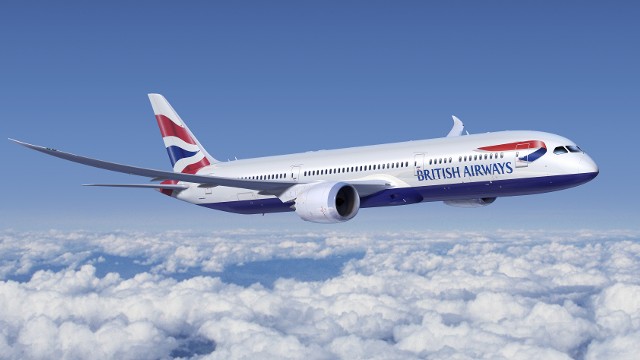Foreign exchange risk is now a major component of airfares on Nigerian routes, the country managers of top foreign airlines have revealed.
Investigations have revealed that the airlines operating on international routes in the country had increased airfares by as much as 100 per cent as a result of the development.
Foreign airlines are also stating that they may have no choice than to sack about 2,000 Nigerian Airline workers over their inability to source enough forex for their operations
A survey of all the major Nigerian routes flown by the foreign airlines in the country showed that the cost of return tickets had been increased by between 80 per cent and 120 per cent of the previous fares, depending on the carrier, time of booking and the season.
The survey cuts across Nigeria-North America routes, Nigeria-South Africa route, and Nigeria-Europe routes. Airfares on the Lagos-London, Abuja-London, Lagos-New York, Lagos-Atlanta, Lagos-Houston, and Lagos-Johannesburg routes were examined.
Findings also showed that local airlines operating international flights, especially Arik Air and MedView Airlines, had increased their airfares.
For instance, airfares on the Lagos-London and Abuja-London routes now cost an average of N380,000 for the economy class seat, as against the average of N200,000 a year ago on the British Airways and Virgin Atlantic Airways. This represents an increase of 111 per cent.
Similarly, on Air France, an economic ticket on the Lagos/Abuja-London routes now goes for about N360,000, while Lufthansa German Airlines charges N380,000. These represent an increase of 80 per cent and 90 per cent, respectively, when compared with an average fare of N200,000 on the routes a year ago.
A Business Class ticket now goes for as high as N3m as against the N1.5m a year ago on the Lagos-London route.
On the Lagos-Atlanta and Lagos-Houston routes, Delta Airlines and United Airlines, which used to fly Economy Class passengers for between N270,000 and N330,000 some 12 months ago, now render the same service at an average fare of N600,000, depending on the time of booking. This represents an increase of about 100 per cent.
South Africa Airways and Arik Air, which used to fly the Lagos-Johannesburg routes for between N100,000 and N120,000 for the economy class, now fly the route for between N180,000 and N220,000, depending on the time of booking and the season.
The Lagos-Paris route, which used to go for N180,000 on the average, now goes for around N400,000. This represents an increase of 120 per cent.
Operators link the increment in fares to the scarcity of foreign exchange to attend to the operational needs of the carriers and the erosion in the value of the ticket sales proceeds, which are now stuck in banks due to lack of forex to repatriate the funds.
Late last year, the new administration of President Muhammadu Buhari had unveiled a fiscal policy, through the Central Bank of Nigeria, restricting access to foreign exchange and funds transfer out of the country.
While this has had advantages for some sectors of the economy, foreign airline operators have complained of their inability to repatriate revenue to their operational bases as a result of the new policy.
An official of one the airlines told our correspondent that the carrier had close to N90bn as accumulated earnings in banks, which it had been unable to repatriate.
He said that the airline industry relied heavily on cash to meet its commitments, adding that it was sad that the government was not seeing things this way.
With huge airline revenue in the vaults of the banks, some of the operators nursed fears of being exposed to risks should the pressure on the naira lead to the devaluation of the currency, which could erode the value of the funds by about 35 per cent to 45 per cent.
Following the difficulty in repatriating earnings from Nigeria, some of the airlines initially began restricting cheap fares on the Nigerian routes in the last quarter of last year, leading to an indirect hike in fares.
At the time, the effect was felt more on second tier routes from Lagos-London-Atlanta, Lagos-London-New York, Lagos-London-Miami, Lagos-London-São Paulo, Lagos-London-Houston; or Lagos-Frankfurt-New York, Lagos-Frankfurt-Chicago, Lagos-Frankfurt-Los Angeles, and Lagos-Frankfurt-Shanghai.
Citing Nigeria’s slowing economy amid forex scarcity, some international airlines are now contemplating reducing flights to the country or operating smaller capacity aircraft as a short-term measure.
However, following complaints by the airlines, representatives of the International Air Transport Association are said to have pleaded with the CBN Governor, Godwin Emiefele, to intervene in the matter and make dollars available to them.
But the move has yet to yield any positive results.
The foreign airlines also reportedly met with the Minister of Transportation, Chibuike Amaechi, and urged him to look into their case.
A spokesperson for one of the airlines noted that the difficulty in repatriating revenues was affecting aircraft leases and fuelling, stating that the earnings were partly being used for fuel and renewing aircraft leases.
While the situation persists, the effect on air travellers and other businesses that depend so much on air travel has been immense.
A manager with a transport and logistic firm, Mr. Emmanuel Iruobe , said the company had incurred more costs than were provided for in the execution of most contracts this year.
Iruobe urged the government to look into the situation with a view to resolving it in the interest of Nigerians.
On their part, stakeholders in the travel industry under the aegis of the National Association of Nigeria Travel Agencies have faulted the astronomical cost of air tickets by the airlines, especially the foreign carriers.
Describing the situation where taxes that go to the airlines are higher than base fares as unacceptable, the group has petitioned the Federal Government, through the Ministry of Aviation, to caution the foreign airlines over the alleged sharp practices.
The Publicity Secretary, NANTA, Mrs. Ngozi Ngoka, opined that the cumulative effect of taxes and surcharges by airlines also generated a final price to the passenger that could be as much as double the advertised airfare for a short-haul flight.
Another stakeholder, who is the Chief Executive Officer, Gadshire Travels, Mr. Gbenga Adebayo, berated the airlines, describing the excuse of forex scarcity and multiple taxes given to increase fares as untenable.
According to him, the arbitrary increment and gap between what is charged in Nigeria and other African countries on the same routes are due to the failure of regulatory authorities to perform their duties.
Reacting to the development, the Central Bank of Nigeria has said that the seeming blackmail by foreign airlines over their demand for foreign exchange would not fly.
According to the CBN Governor, Godwin Emefiele, scarcity of forex is being professionally managed by the monetary authorities in such a way that priority is given to the sectors that drive growth in the economy, especially manufacturing industries which is public knowledge.
Also reacting to threats by foreign airlines to sack about 2,000 workers over their inability to source enough forex for their operations, CBN’s spokesman, Mr. Isaac Okoroafor, said the CBN had been selling forex to airlines through the Deposit Money Banks, DMBs, but that it should be recognised that there were other competing demands for the same forex from other sectors.
He said: “That claim is not true. CBN has been selling forex to the airlines through their banks. We are going through a period of forex scarcity. Part of our strategy has been to identify key sectors and industries that will drive growth and curtail excessive forex demand. Airlines have been buying through their banks at the interbank rate.
“I am sure if you go through the published statements of sale by the banks, you will find this. What is not possible now, however, is for CBN to meet the demand by some of these airlines. But look at the advertised their airfares.
SOURCE: shosilva.com








